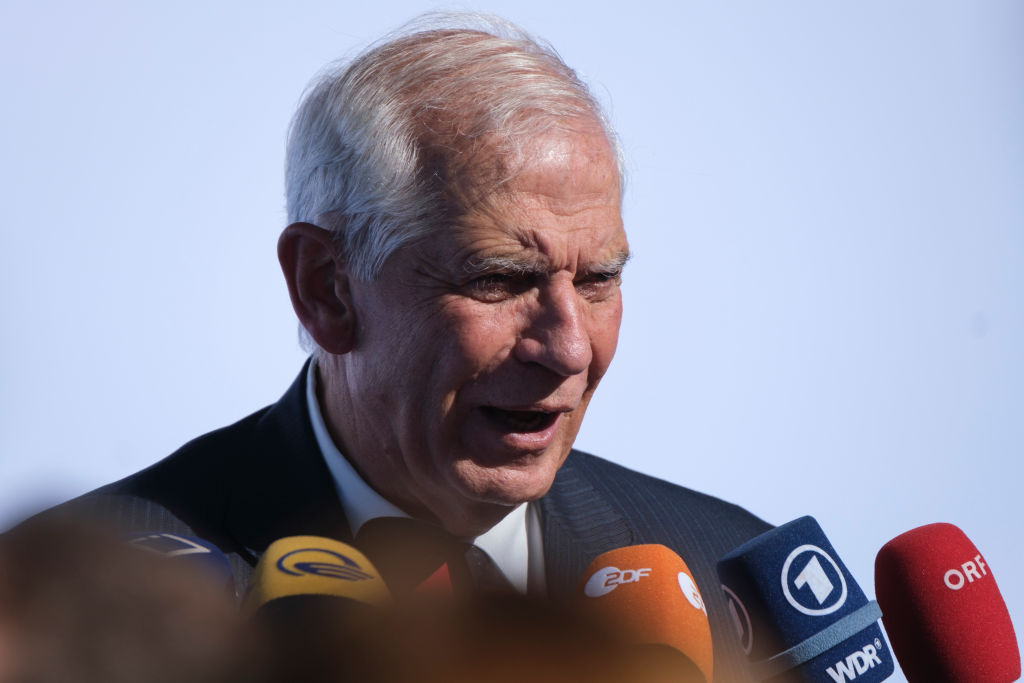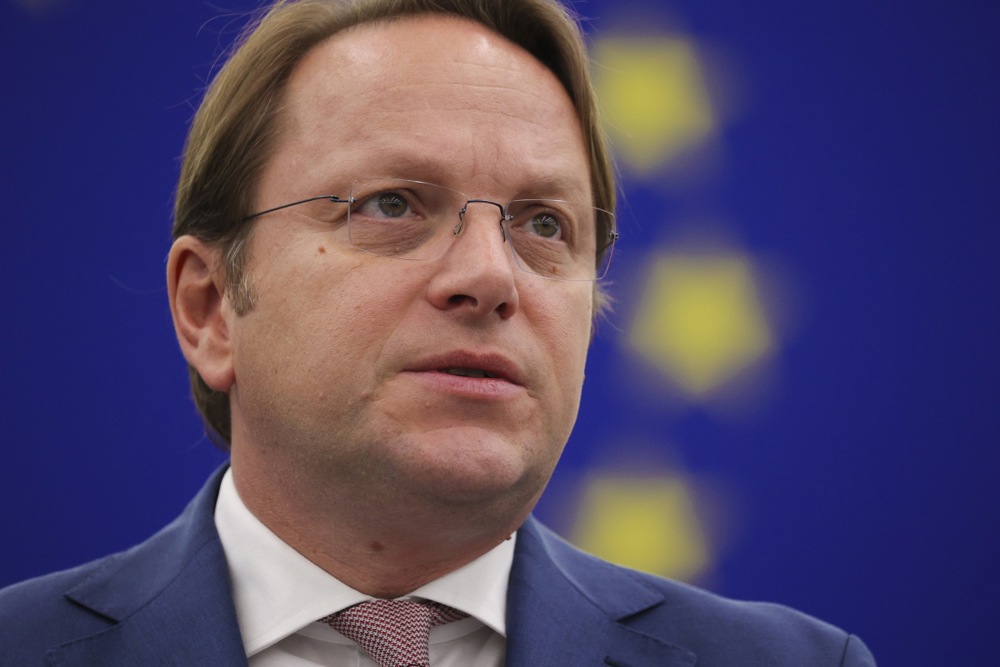It appears that some people are shocked about the way in which the EU is entangled in Palestinian politics and funding. If one is, it merely suggests one hasn’t been looking very hard or for very long.
The Commissioner for the EU’s near abroad, the Hungarian, Olivér Várhelyi had said, “There can be no basis for business as usual. As the biggest donor of the Palestinians, the European Commission is putting its full development portfolio under review, worth a total of €691m.” He was rapidly contradicted by Josep Borrell, who is holed up in Oman surrounded by Arab state dignitaries of the Gulf Cooperation Council. Borrell claimed that, “The suspension of the payments – punishing all the Palestinian people – would have damaged the EU interests in the region and would have only further emboldened terrorists.”
All this goes to maintain the classic European Union chaos and stalemate over the Levant. For decades the European Union has been playing a slightly shady game with the Middle East, in particular with the intractable problems of Israel and Palestine.
The Middle East conflict has been at times an almost perfect low level proxy war. The battle over influence between the US and European countries has a very long lineage, predating World War II and the foundation of the European communities. The US and European powers have squabbled over the territory for decades. France, the UK and the US have been engaged in a dance macabre that has left us where we are and is brilliantly illustrated in historian James Barr’s books, A Line in the Sand, and more recently Lords of the Desert. The fact that the US has from the inception of the State of Israel been its security backup has allowed the EU to feel justified in supporting the Palestinian authority as a counterweight. The fact the US has also been the EU’s security back up allowing the development of the EU welfare state system – and its congenital belief in its own greater morality – is conveniently forgotten in the chancelleries of Europe and most prominently in Brussels.
It is all part of a broader competition in global real politik between the EU and the US. The EU sees itself as a soft power superpower, and resents the US’s ability to project real power. In many ways the EU see the US not as a global strategic partner, but as an opponent. European values it makes clear year on year are not US values. When the US is at its most bullish and self confident, it is seen as a clear and present threat. The America of Republicans – and particularly the America of Donald Trump – is an anathema, nearly an enemy. The America of Biden and Obama, whilst more palatable to European political taste buds, is still a constant problem. There remains deep resentment on the continent of Europe for the simple fact that it was US help in World War Two that saved Europe. Nobody likes to be morally beholden. In 1966, when de Gaulle removed France from NATO’s military structure, he demanded that all American soldiers be removed from France. Dean Rusk. the then US Secretary of State quipped, “Does that include the dead Americans in military cemeteries as well?”
Evidence that the EU is not as it prefers to be seen – an honest broker between the Palestinian Authority and the State of Israel – first really came to light in 2002. The then youngest member of the European Parliament, the 24 year old hard Left Green Ilka Schröder, had had a change of heart and in her own words realised that significant sums of European Aid to the PA were being channelled to terrorist activity and the EU was either incompetent or turning a blind eye to this. The problem is that funds are essentially fungible and forensic accountancy practices in places like Gaza are merely a shroud over embarrassment.
An European Parliamentary enquiry was set up into the EUR 10m monthly funding, which in turn in 2003 gave rise to an investigation by the anti-fraud office OLAF. Finally in 2005, OLAF reported that, “there is no conclusive evidence of support of armed attacks or unlawful activities financed by the European Commission’s financial contributions to the (Palestinian Authority) budget”. Not what one might call a ringing endorsement. For Ilka Schröder’s support of Israel against what she clearly saw as institutional antisemitism at the EU level, she was driven from the EP’s Green Group and left the Parliament in 2004.
And how those with long memories could hear echoes of this failed investigation when in May of this year Várhelyi tried put a stop to funding anti-Semitic school textbooks in Palestine. 15 countries wrote to complain about the delay in funding led by the Irish – a government terrified by the growth of pro-Hamas Sinn Fein. The letter these countries wrote to the Commission includes this prize quote, “The EU objective, and the objective of the international community, must be to strengthen the Palestinian Authority”.
Subsequently Van de Leyen ordered the unblocking of those funds on June 14 in a joint press conference with Mohammad Shtayyeh, Palestine’s Fatah PM. No comment was made about removing anti-Semitism from school books, but the money flowed into Palestinian coffers. Von de Leyen told the world’s press “All the difficulties are gone”.
“All difficulties are gone” – how like ash those words should feel in her mouth and the mouth of all Europeans when they survey the bloodied dust of southern Israel and Gaza today. But instead of that, the EU still equivocates.






Perhaps now isn’t the time to be waving the trade war sabre: China, EV subsidies and property market travails